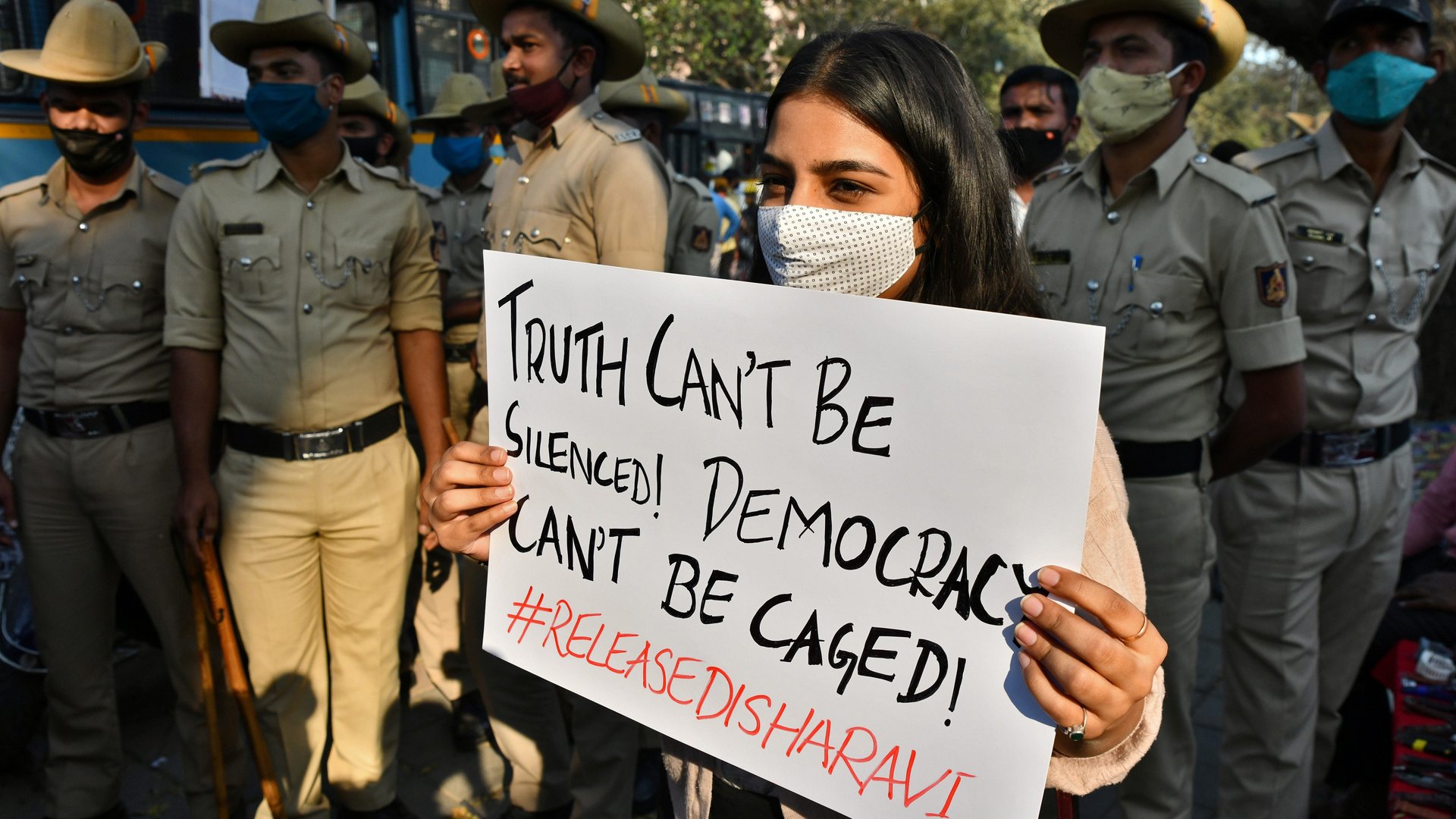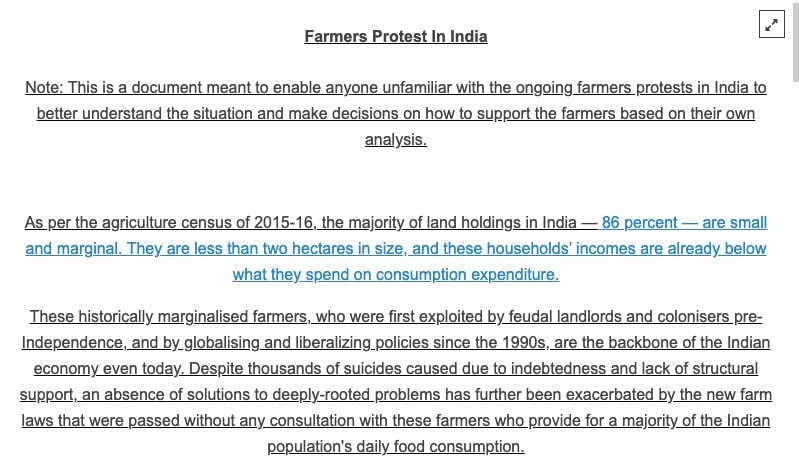The toolkit—an international conspiracy in India—is a common practice in protests across the globe
The world’s largest democracy is riled up over an e-document.


The world’s largest democracy is riled up over an e-document.
Over the last few days, the Delhi police have arrested at least one person in relation to what is now popularly being called the “toolkit investigation.” While 22-year-old environmental activist Disha Ravi has been sent to Delhi police custody for five days, the police have reportedly issued non-bailable warrants against Mumbai-based advocate Nikita Jacob and her associate Shantanu, claiming that they were allegedly responsible for creating the controversial Google document with Ravi.
The investigation is linked to a toolkit that the Narendra Modi government claims is part of a global conspiracy against India. This toolkit—a Google doc that detailed information on how to support Indian farmers who have been protesting against three new farm laws for over three months—came into the limelight after Swedish environmental activist Greta Thunberg shared it on Twitter on Feb. 4. She deleted the tweet within hours. As per the police, Ravi is an editor of the document and “key conspirator” in its formulation and dissemination.
While thousands of Indians have expressed their anger over this document on Twitter, geopolitical experts believe it’s a bit of a stretch to think that just an advocacy docket is enough to “tarnish India’s image” or pose a threat to the country’s democracy and sovereignty. Particularly, given the fact that similar “toolkits” have been used in several protests across the world.
What’s in a toolkit?
A toolkit is a document created to explain an issue in detail and provide information on how to support the cause.
A simple google search throws up links to several toolkits that protestors across the globe have used. For instance, a Google search with keywords protests and toolkit shows a document (pdf) created by South Africa-based organisation Civicus, detailing the necessity of protests and the challenges to organise a successful demonstration. Civicus is a membership alliance with more than 4,000 members in over 150 countries.
🎧 For more intel on toolkits, listen to the Quartz Obsession podcast episode on Google docs. Or subscribe via: Apple Podcasts | Spotify | Google | Stitcher.
Most recently, toolkits were used during the Black Lives Matter (BLM) protests in the US last year. At least two such documents were used during the BLM protests: one that contains (pdf) information about the hashtags, process, and slogans related to the protest, and another one (pdf) by Greenpeace organisation containing the procedure elaborating the rights and stakeholders involved, among other necessary information.
The toolkit that resulted in Ravi’s arrest was not very different from the others. It was “a document meant to enable anyone unfamiliar with the ongoing farmers protests in India to better understand the situation and make decisions on how to support the farmers based on their own analysis,” it stated.

Like in many other instances over the years, geopolitical experts believe that this arrest and FIR against the toolkit is the government’s attempt to distract people from the real issues.
Why is the toolkit an issue?
“The arrest of Disha Ravi furthers the impression that there is closing space for dissent and civil society activism in India,” Milan Vaishnav, a senior fellow at the Carnegie Endowment for International Peace, told Quartz.
Vaishnav further suggested that the arrest of the Bengaluru-based activist might put India’s global supporters in the spot. “Internationally, many of India’s well-wishers are scratching their heads. Rather than responding to Rihanna, demonising Greta Thunberg, or arresting student activists, a far more effective approach would be to call out the hypocrisy of Western governments who have placed strict limits on India’s farm exports,” Vaishnav said. “After all, this would show true solidarity with the plight of India’s farmers.”
In the past, the ruling Bharatiya Janata Party government has been in controversies over jailing activists and lawyers who have been its vocal critics. Grassroots workers such as Sudha Bharadwaj and Varavara Rao, or comedians like Munawar Faruqui are a few names in the long list of such arrests over the years. While some of them are out on bail, others are still waiting for freedom.